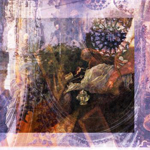|
|
 |
Dusted Reviews
Artist: Sean McCann Album: Prelusion Label: Root Strata Review date: Apr. 5, 2013 |

|
|
|
 |
When Prelusion was first released on CD-R in 2011, the first 125 copies came with the fragrance of scented oils. That’s a long way from Monotract covering their 2000 CD Blaggout in broken glass, but both packaging flourishes suit the music that they ornament. Blaggout is a 30-track album of cracked fragments and damaged songs, and Prelusion is ethereal music that’s sometimes so light and airy that it’s barely there. Though the music’s delicacy can be extreme, it can also be alluring, and now that more listeners can get a sniff of what was once a limited edition release, Prelusion figures to seduce some converts to Sean McCann’s wispy ways.
“Our Silhouette” begins the album with a slowly rolling series of shallow ebbs and swells, with glimmering smears of piano floating in the foreground over a backdrop of ambient mist. The music nears weightlessness, with the tones of the piano set adrift like paper lanterns on a quiet sea, and the quieter sliding seamlessly into the silence that is one of the track’s most prevalent presences. The vaporous music practically forces itself into the background; its passivity blunts its beauty, making “Our Silhouette” little more than mood music, the sort of sonic wallpaper that feels as though it’s intended to stay out of the way.
Prelusion’s remaining two tracks have more substance. “Port” and “Have I Forgotten” are still sometimes as light as a feather, but their drones are more assertive and engaging. It’s pretty standard pretty stuff: “Port” is a well-crafted piece of deep organ drones and cirrus streaks, and “Have I Forgotten” lays ghostly tones across a bed of swirling smoke. In a sense, the latter is a repeat of the approach used on “Our Silhouette,” but with more tooth. The intentionality of the music is more palpable and the construction more cohesive; it’s music that I want to actively listen to, not simply a soundtrack to my mental drift.
If it’s calm skies and gentle waves that you seek, Prelusion is capable of bringing the bliss. “Our Silhouette” isn’t the strongest centerpiece for a reissue that will be, for many, an introduction to Sean McCann’s work, but it doesn’t drag the rest of Prelusion down with it.
By Adam Strohm
|







